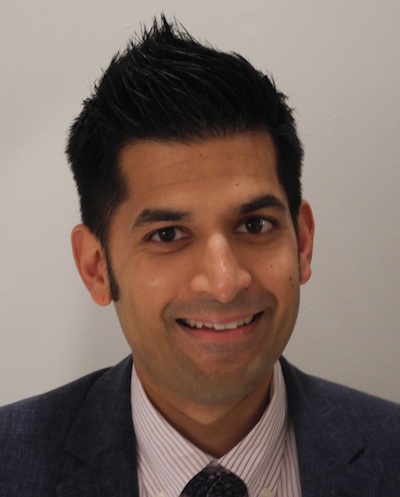 Spending on entitlement programs like Medicare and Medicaid consumes some two-thirds of all federal spending, but new research from the University of Notre Dame shows that information technology investments in health care lead to significant spending reductions — potentially in the billions of dollars...
Spending on entitlement programs like Medicare and Medicaid consumes some two-thirds of all federal spending, but new research from the University of Notre Dame shows that information technology investments in health care lead to significant spending reductions — potentially in the billions of dollars...
News Clips
Survey: Healthcare Execs See Poor ROI from EHRs but Optimistic about Analytics
 The billions in taxpayer dollars spent on electronic health records (EHRs) since 2009 have unfortunately generated a poor return for the nation’s healthcare system, according to a survey of more than 1,100 healthcare professionals conducted by Salt Lake City-based data analytics vendor Health Catalyst. Health Catalyst polled healthcare professionals attending the fourth annual Healthcare Analytics Summit September 12-14 in Salt Lake City...
The billions in taxpayer dollars spent on electronic health records (EHRs) since 2009 have unfortunately generated a poor return for the nation’s healthcare system, according to a survey of more than 1,100 healthcare professionals conducted by Salt Lake City-based data analytics vendor Health Catalyst. Health Catalyst polled healthcare professionals attending the fourth annual Healthcare Analytics Summit September 12-14 in Salt Lake City...
- Login to post comments
HHS Offers Hurricane Guidance to Healthcare Facilities
With Florida still reeling from the effects of Hurricane Irma, a federal agency within the Department of Health and Human Services has issued draft guidance to help healthcare facilities with disaster planning and recovery for major hurricanes. Based on lessons learned from Hurricanes Katrina, Sandy, Harvey and others, the document—from the Office of the Assistant Secretary for Preparedness and Response—provides an overview of the “potential significant public health and medical response and recovery needs facing hurricane- and severe storm-affected areas.” Among the topics in the draft are those covering health information management...
- Login to post comments
Emergency Apps You Can Use Without Wi-Fi During A Disaster
During a national disaster, contacting someone for help can be tricky. Luckily, in the digital age, there are emergency apps you can use without Wi-Fi, or cellular data, during a disaster. While some of these apps are also great hacks for free messaging during international travel, many were actually developed to help people in disaster zones call for help...
- Login to post comments
Better Tech Is Here for Healthcare
 Better technology is out there serving other industries … and it can be applied in healthcare. Technology should ease administrative loads and put clinicians back in front of patients! I’ve talked about some of this previously and how we keep clinicians involved in our design process. When it came to building an entirely new EHR, the driving force behind our team researching and adopting new technologies was to imagine a clean slate...
Better technology is out there serving other industries … and it can be applied in healthcare. Technology should ease administrative loads and put clinicians back in front of patients! I’ve talked about some of this previously and how we keep clinicians involved in our design process. When it came to building an entirely new EHR, the driving force behind our team researching and adopting new technologies was to imagine a clean slate...
- Login to post comments
Study Shows Electronic Health Information Exchanges Could Cut Billions in Medicare Spending
- Login to post comments
How Congress Ignored Science and Fueled Antibiotic Resistance
The study was being conducted by Dr. Stuart B. Levy, a researcher in Boston. Levy was 36 in 1974. He was the son of a family doctor from Delaware and had grown up accompanying his father on house calls and discussing cases afterward. He was a faculty member at Tufts University School of Medicine, in a part of Boston that is gentrified now but was cheap and seedy then, and he had taken a circuitous route to get there, studying first literature, then medicine, and then microbiology in Italy and France...
- Login to post comments
Former ONC Leaders Cite Challenges in Maximizing EHR Benefits
Four former national coordinators for health information technology have penned a perspective on achievements made in using electronic health records under the HITECH Act and where providers and the HIT industry still must go to continue past progress. The law spurred rapid progress toward digitizing the industry, which now is at an inflection point, say the authors, who include Vindell Washington, MD, Karen DeSalvo, MD, Farzad Mostashari, MD, and David Blumenthal, MD. EHRs have primed the industry to now achieve several positive results, including improving clinical guidelines, and sharing patient data seamlessly and securely...
- Login to post comments
Christians Beat FEMA, and in So Doing, Tame Big Government
Faith-based groups — Christian nonprofits, specifically — have been busy bees of late, providing more aid to hurricane victims than even FEMA, the federal agency that’s supposed to swoop to the scenes of natural disasters, assess the situation and speed the recovery and rebuilding process. Just goes to show: Where charity exists, government is not needed. Look at this, from the Daily Caller: “Faith-based relief groups are responsible for providing nearly 80 percent of the aid delivered thus far to communities with homes devastated by the recent hurricanes”...
- Login to post comments
How Hospital Administrators Are Obstructing Medical Record Exchange APIs
Medical record exchange is a major topic in healthcare, needed to improve healthcare outcomes (and reduce costs) for multiple patients receiving care at multiple sites. The discussion in the industry primarily focuses on technical challenges. In reality, many of the technical challenges have been addressed. A big factor in the inability of medical record exchange is the hospitals themselves. They block information and APIs. I’ve had two experiences with getting medical records...
- Login to post comments
How Hospital Administrators Are Obstructing Medical Record Exchange APIs
Medical record exchange is a major topic in healthcare, needed to improve healthcare outcomes (and reduce costs) for multiple patients receiving care at multiple sites. The discussion in the industry primarily focuses on technical challenges. In reality, many of the technical challenges have been addressed. A big factor in the inability of medical record exchange is the hospitals themselves. They block information and APIs. I’ve had two experiences with getting medical records...
- Login to post comments
EHR Tasks Take Up Half of the Primary Care Physician’s Workday
It’s practically become a mantra in healthcare: EHRs take up too much of physicians’ time. But just how much time do doctors spend on EHR-related tasks? A new study out of the University of Wisconsin and the American Medical Association dug deeper. From 2013 to 2016, researchers analyzed 142 family medicine physicians, all of whom used an Epic EHR, at a system in southern Wisconsin. All data was captured via EHR event log data during clinic hours (8:00 a.m. to 6:00 p.m. Monday through Friday) and non-clinic hours...
- Login to post comments
Critical Bluetooth Flaws Put Over 5 Billion Devices At Risk Of Hacking
 Bluetooth is one of the most popular short-range wireless communications technologies in use today and is built into many types of devices, from phones, smartwatches and TVs to medical equipment and car infotainment systems. Many of those devices are now at risk of being hacked due to critical flaws found in the Bluetooth implementations of the operating systems they use. Over the past several months, a team of researchers from IoT security firm Armis have been working with Google, Microsoft, Apple and Linux developers, to silently coordinate the release of patches for eight serious vulnerabilities that could allow attackers to completely take over Bluetooth-enabled devices or to hijack their Internet traffic.
Bluetooth is one of the most popular short-range wireless communications technologies in use today and is built into many types of devices, from phones, smartwatches and TVs to medical equipment and car infotainment systems. Many of those devices are now at risk of being hacked due to critical flaws found in the Bluetooth implementations of the operating systems they use. Over the past several months, a team of researchers from IoT security firm Armis have been working with Google, Microsoft, Apple and Linux developers, to silently coordinate the release of patches for eight serious vulnerabilities that could allow attackers to completely take over Bluetooth-enabled devices or to hijack their Internet traffic.
- Login to post comments
Interoperability by Design: FDA Issues New Final Guidance for Connected Medical Devices
 The FDA is focusing on safety and effectiveness of interconnected medical devices with the issuance of final guidance on medical device interoperability, released last week. As the FDA notes, medical devices are becoming increasingly connected to one another and to other technologies, and it is critical to address their ability to exchange and use information safely and effectively. For device manufacturers, this guidance provides clarity on how the FDA is thinking about interoperability and patient safety in the premarket submission process and provides considerations for manufacturers in the development and design of interoperability medical devices...
The FDA is focusing on safety and effectiveness of interconnected medical devices with the issuance of final guidance on medical device interoperability, released last week. As the FDA notes, medical devices are becoming increasingly connected to one another and to other technologies, and it is critical to address their ability to exchange and use information safely and effectively. For device manufacturers, this guidance provides clarity on how the FDA is thinking about interoperability and patient safety in the premarket submission process and provides considerations for manufacturers in the development and design of interoperability medical devices...
- Login to post comments
What Harvey Is Teaching the Health Care Sector About Managing Disasters
 The damage inflicted by Hurricane Harvey has posed enormous health challenges in Houston and neighboring areas hit hard by the storm. As regional medical director of emergency medicine for the Houston Methodist Hospital System, one of us (Neil) has been on the front lines of the medical response. The other (Ranu) has been involved in responses to such public health disasters as the Ebola crisis in Africa, Hurricane Katrina in Louisiana, and the 2010 earthquake in Haiti. The response to Harvey is ongoing, but there are early lessons that could help governments and health systems in dealing with the aftermath of Hurricane Irma and other major catastrophes down the road...
The damage inflicted by Hurricane Harvey has posed enormous health challenges in Houston and neighboring areas hit hard by the storm. As regional medical director of emergency medicine for the Houston Methodist Hospital System, one of us (Neil) has been on the front lines of the medical response. The other (Ranu) has been involved in responses to such public health disasters as the Ebola crisis in Africa, Hurricane Katrina in Louisiana, and the 2010 earthquake in Haiti. The response to Harvey is ongoing, but there are early lessons that could help governments and health systems in dealing with the aftermath of Hurricane Irma and other major catastrophes down the road...
- Login to post comments
NHS Swindells Urges Vendors to Take Open Approach to Data
In his keynote address to the 2017 Health and Care Innovation Expo, Matthew Swindells said software providers should “not be protective about ‘your’ data – the data belongs to the patient”. He continued: “If the patient wants you to share what you’ve got with another clinician who’s treating them, I don’t want to see vendors locking the data down, and I don’t want to see hospitals treating patient data as if it were some sort of market opportunity.”...
- Login to post comments